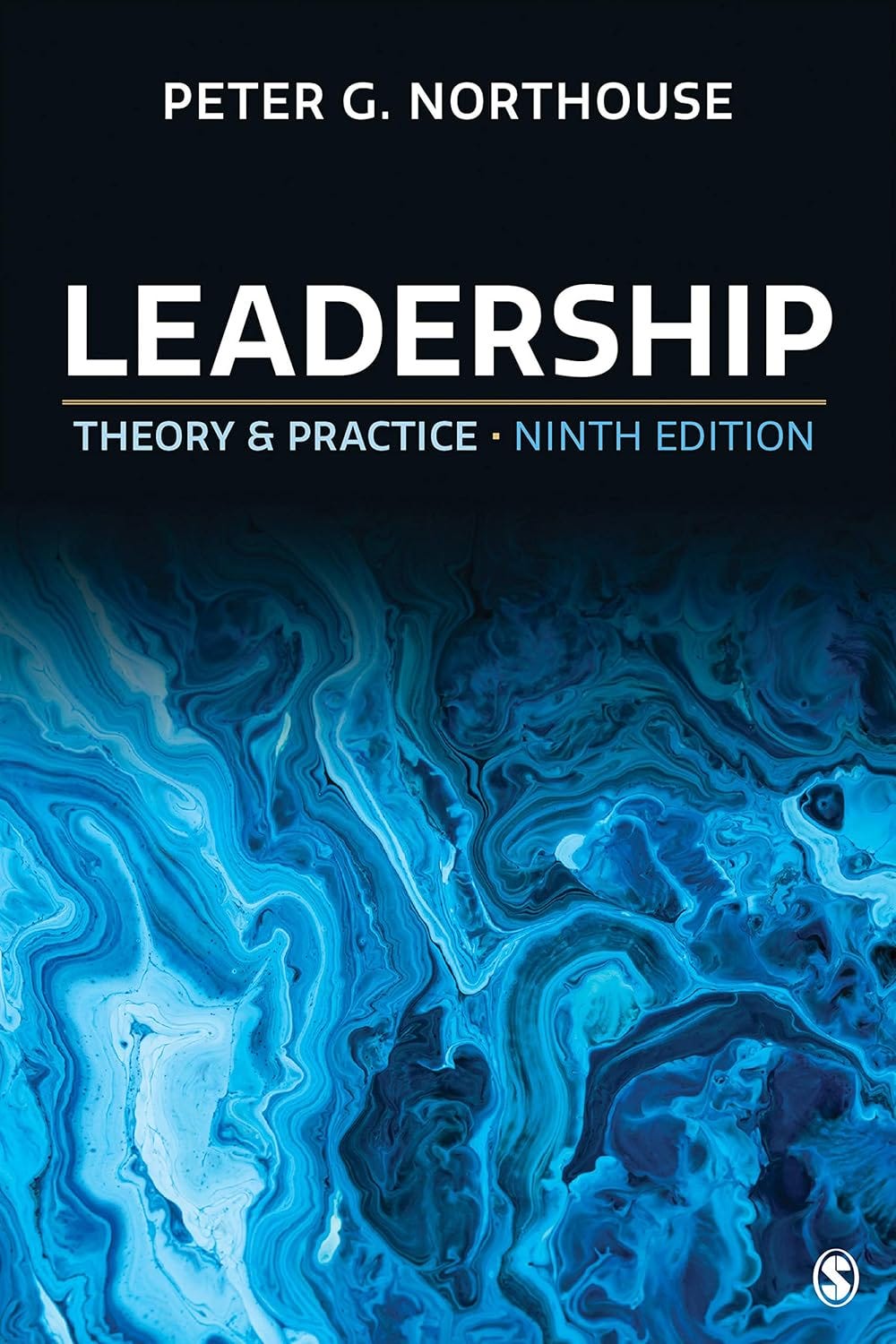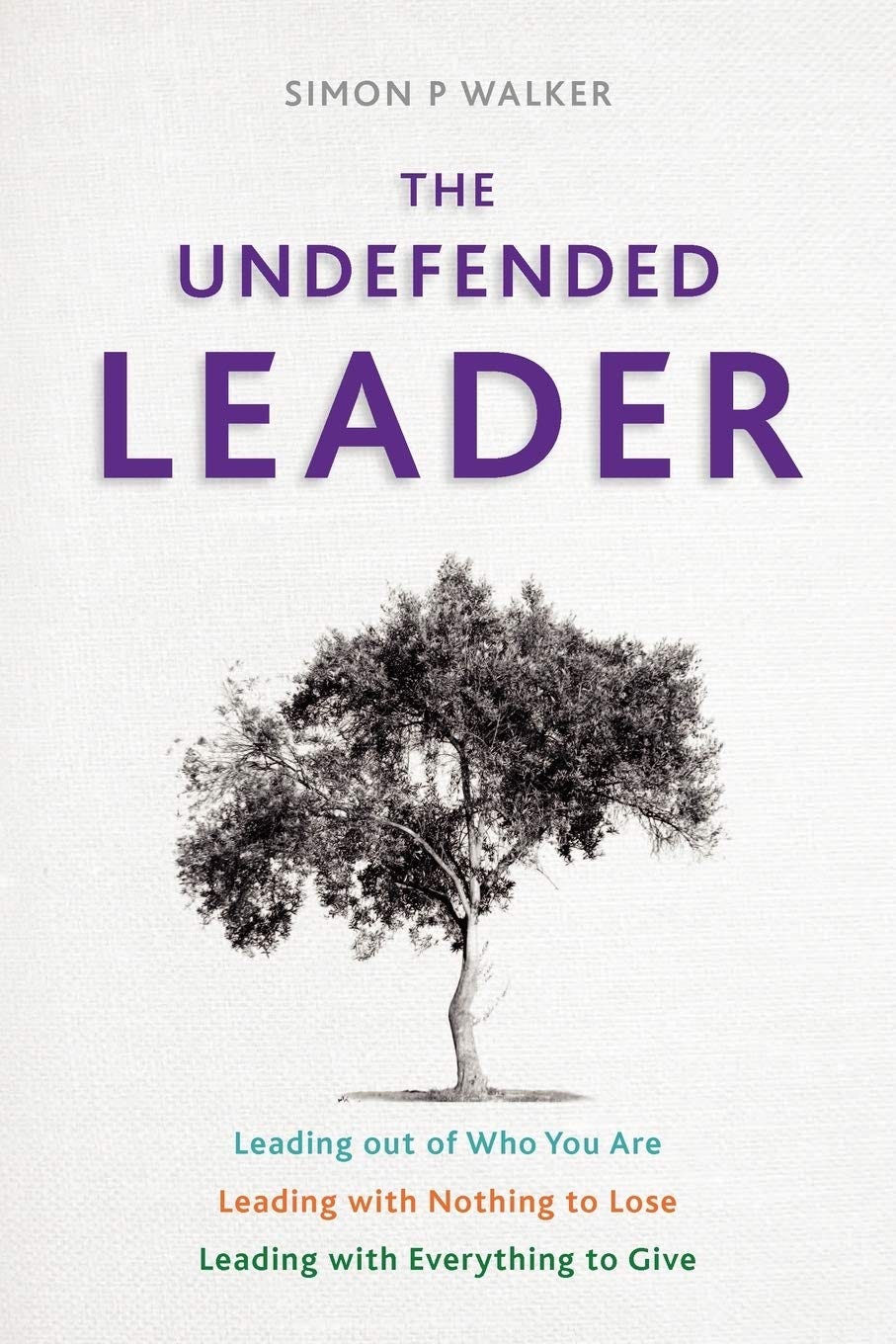My Top Three Leadership Books To Read
Recommendations from the doctoral of leadership program I have led for fifteen year

Because I am involved in leadership and designed and led a Doctor of Leadership program for fifteen years, I regularly get asked what the best leadership books are
Most popular leadership books have one key idea and are full of application stories. Many are pragmatic and practical, offering the how-to of leadership skills. Some explore the nature of leadership. Almost all offer no explicit theology of leadership, i.e., a framework for understanding and practising leadership rooted in theological beliefs, principles, and values.
I select texts for the leaders in my doctoral program so they can better understand:
The different methodologies and types of leadership at large in the world, i.e. adaptive, transformational, servant, etc
The contextual and cultural issues that present current challenges to leadership and the origins of those issues, i.e. secularism, consumerism, identity politics, post-modernism, etc
The nature of identity and relationships, social, organisational and ecclesial within society and implications for leadership
A theology of leadership that explores, in particular, what kind of people we are, the nature of the organisations we lead, and what we become through different modes of leadership
The intersection of neuroscience, psychology and behavioural science with theological understandings of leadership, practice of leadership and development as leaders.
When I answer the question about which books I recommend, they emerge from the above. So here are not only my perennial recommendations but also the three books I return to and re-read and continue to mine for my personal understanding and practice of leadership.
1. Leadership: Theory and Practice by Peter Northouse
Amazon 9th Edition February 2021, Sage Publishing, 10th Edition November 2024
If you are going to write about leadership at any serious level, you need to know about and have read this book. I love the title; it does what it says on the tin, giving an account of the major theories and models of leadership with a focus on how theory can inform practice.
Trait, Skills, Behavioural, Situational, Path-Goal, Leader-Member, Transformational, Authentic, Servant, Adaptive, Group & Team, Followership, Social Identity, Inclusive, and Ethical leadership are the chapters in the 2024 10th edition. The book is pricey, and I tell my students to buy the version they can afford, but be aware the most recent edition carries the latest understanding of leadership models and emerging ones.
I return to it repeatedly, not for profound transformation but for understanding leadership proper in methods, theory and practice.
2. A Failure of Nerve: Leadership in the Age of the Quick Fix, Edwin Friedman
I have been recommending this book for over fifteen years. When I read it, I wish I had read it even sooner. This book has dramatically impacted me by helping me name processes and behaviours around, and within me and the dispositions I need to undertake to be a healthier and better leader. It is also the book my students often mention as the most helpful for them. As they read it, they comment on how it names and diagnoses so much of their daily experiences in leadership and life.
Friedman coined the phrase ‘non-anxious’ presence, which has entered common parlance. He identified many years ago that the age of anxiety was in, and that it was growing and the cause of that and the need for differentiated leadership.
The real problem of leadership is a failure of nerve. Leaders fail not because they lack information, skill, or technique but because they lack the nerve and presence to stand firm in the midst of other people’s emotional anxiety and reactivity. Friedman’s understanding of leadership hinges on the idea of emotional process. Every family and every institution has an implicit emotional/relational environment and a way of operating within that environment. Good leadership has less to do with skill, data, technique, or knowledge, and more to do with a leader’s ability to discern and navigate the emotional and relational climate of a family or organization.1
Friedman, a family therapist and leadership consultant, critiques contemporary leadership styles that often succumb to pressures for quick fixes and emotional reactivity. He advocates for a more self-differentiated leadership approach, where leaders maintain a clear sense of self while fostering a mission-driven and calm presence within their organisations. Friedman’s Jewish identity and use of family systems lead to ideas that are hospitable to Christian theological understandings of leadership. For example, he lays out how the head and body function together, as a brain-body system, where the head is present in the body, and how organisations like living systems where the health of a head of the body politic systemically affects the whole of an organisation.
3. The Undefended Leader (trilogy) by Simon Walker
Northouse gives us an overview of all the primary leadership methodologies used in practice. Friedman gives us insight into the emotional process, anxiety and unhealthy attachments of people and leaders. Then there is Simon Walker, who in ‘The Undefended Leader’ gives us insights into why polarised, conflict-ridden leadership dynamics occur and the toll that takes upon leaders.
Upon my recommendation, people who read this book report similar things to my experience—aha moments in naming and diagnosing their most painful leadership experience and the compelling and hopeful way forward Walker offers.
This is the leadership book that affects me repeatedly at the deepest levels—for my sense of being a leader, for owning my pathologies and for enabling me to be accountable for growth and development. And for integrating that all into a mode and method of leadership that allows the achievement of mission without losing my soul.
Walker articulates his ideas using a combination of personal anecdotes, observations from various leadership contexts, and psychological principles. The book outlines how leaders often become overwhelmed by external pressures, criticism, and the emotional upheavals associated with leadership roles. He uses a powerful descriptive and diagnostic metaphor of front and backstage to map this dynamic. Walker argues that leaders must cultivate a profound understanding of themselves and their emotional responses to counteract these challenges. By adopting an undefended mindset, leaders can approach conflicts and criticisms with clarity and composure, focusing on constructive engagement rather than defensiveness.
Conclusion: Something Exciting is Coming
I am excited to share a video interview I just made with Dr. Simon Walker about ‘Undefended Leadership’. Ensure you hit subscribe to be notified when it is released here in the next few weeks.
PS You can also view all the text I have set for my doctor of leadership students here: jason.so/DLGPreadinglist
See Bob Thune’s superb summary of Friedman, made in 500 words, https://www.bobthune.com/blog/2016/06/summary-edwin-friedmans-a-failure-of-nerve-in-500-words





